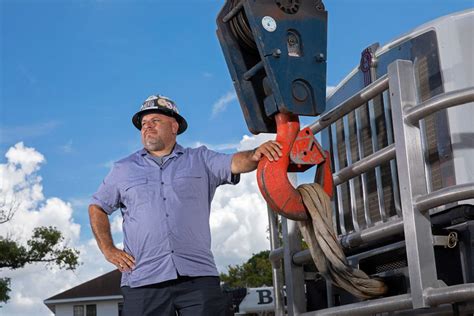If you’re considering a career as a crane operator, you’re probably wondering about the potential salary and career prospects in this field. Crane operators are an essential part of many industries, and their skills are in high demand. In this blog post, we’ll delve into the various factors that influence crane operator salaries, including the highest paying industries and geographical variations. We’ll also explore the additional benefits and perks that come with a career as a crane operator, as well as the potential for career progression and salary growth. Additionally, we’ll discuss the certifications and training necessary for success in this field, as well as provide helpful tips for negotiating a higher salary. Lastly, we’ll take a look at the future outlook for crane operator salaries, so you can make an informed decision about pursuing this lucrative career path.
Table of Contents
What is a crane operator?
A crane operator is a skilled professional responsible for operating and maintaining crane machinery, which is used to lift and move heavy materials on construction sites, warehouses, and other industrial settings. This job requires a high level of technical expertise and safety awareness, as crane operators are responsible for ensuring that materials are lifted and transported in a secure and efficient manner.
Crane operators work closely with construction and project managers to understand the specific requirements for each job, including the weight and dimensions of the materials to be lifted, the location of the lift, and any potential safety hazards. They must also be knowledgeable about the different types of cranes and their capabilities, as well as the relevant safety regulations and best practices for crane operations.
In addition to operating the crane, these professionals are also responsible for conducting routine maintenance and inspections to ensure that the machinery is in good working condition. They may need to troubleshoot and repair any mechanical issues that arise, or coordinate with maintenance technicians to address more complex problems.
Overall, crane operators play a crucial role in the smooth and safe execution of construction projects and industrial operations, and their expertise is essential for maintaining a productive and secure work environment.
How much do crane operators earn?
How much do crane operators earn?
Crane operators can earn competitive salaries depending on various factors such as experience, location, and industry demand.
The average annual salary for crane operators in the United States is around $55,000, but this can vary significantly based on the factors mentioned above.
For example, crane operators working in high-demand industries such as construction or oil and gas extraction may earn higher salaries than those in less in-demand sectors.
Additionally, crane operators with extensive experience and specialized training may command higher salaries compared to entry-level operators.
Factors that influence crane operator salaries
There are several factors that can influence the salaries of crane operators, including experience, location, industry, and additional skills and certifications.
Experience is a major factor in determining a crane operator’s salary. Those with more years of experience are likely to earn higher salaries than those who are just starting out in the field. Experienced crane operators may also have a better chance of landing high-paying jobs in more specialized industries.
Location also plays a significant role in determining crane operator salaries. In areas with high demand for crane operators and a lower supply of skilled workers, salaries are likely to be higher. Similarly, crane operators working in urban areas or in regions with a high cost of living may command higher salaries to offset the increased expenses.
Industry is another factor that can greatly influence crane operator salaries. Crane operators working in industries that require specialized skills, such as construction or oil and gas, may earn higher salaries compared to those working in more general industries. Additionally, industries that involve more risk, such as maritime operations, may offer higher salaries to compensate for the potential hazards of the job.
The highest paying industries for crane operators
Crane operators are highly skilled professionals who are in demand across a variety of industries. With their specialized expertise, crane operators are able to command higher salaries in certain industries than others.
One of the highest paying industries for crane operators is the construction industry. Construction projects often require the use of cranes for heavy lifting and positioning of materials, making crane operators an essential part of the construction process. As a result, crane operators in the construction industry can expect to earn competitive salaries.
Another high paying industry for crane operators is the oil and gas industry. With the need for heavy lifting in the extraction and transportation of oil and gas, crane operators play a crucial role in these operations. This high demand for crane operators in the oil and gas industry translates to higher pay and attractive benefits.
The maritime industry is also known for offering competitive salaries to crane operators. Ports and shipping facilities rely on cranes to load and unload cargo from ships, making the expertise of crane operators invaluable. As a result, crane operators in the maritime industry can enjoy lucrative compensation packages.
Geographical variations in crane operator salaries
When it comes to crane operator salaries, the location of the job plays a crucial role in determining how much they can earn. Geographical variations can have a significant impact on the compensation package for crane operators.
In some regions, such as urban areas with high demand for construction projects, crane operators may command higher salaries due to the cost of living and the abundance of job opportunities.
On the other hand, in rural or less populated areas, the demand for crane operators may be lower, leading to lower salaries and fewer benefits.
Additionally, crane operators working in regions with high levels of unionization and strong labor laws may also enjoy better pay and benefits compared to those in areas with less labor protection.
Additional benefits and perks in crane operator careers
When considering a career as a crane operator, it’s important to look at not only the salary, but also the additional benefits and perks that come with the job. Many crane operators enjoy a range of benefits that can make their career even more rewarding.
One of the most common benefits for crane operators is health insurance. This is an important perk as crane operation can be a physically demanding job, and having access to good healthcare can provide peace of mind for operators and their families. Additionally, some companies offer retirement plans and other financial benefits to help ensure a secure future for their employees.
In addition to healthcare and financial benefits, some crane operators may also have access to other perks such as paid time off, flexible scheduling, and opportunities for overtime pay. These benefits can make a significant difference in the overall job satisfaction and work-life balance for crane operators.
Finally, some companies may offer training and professional development opportunities for their crane operators. This can include ongoing education and certification programs, which not only benefit the employee but also contribute to increased safety and efficiency in the workplace.
Crane operator career progression and salary potential
Crane operators play a critical role in the construction industry, operating heavy machinery to lift and move materials on construction sites. As with any career, crane operators have the potential for career progression and increased earning potential as they gain experience and expertise.
For crane operators, career progression often means moving up to larger, more complex machinery or taking on supervisory roles. With additional training and certifications, crane operators can advance to become master riggers, signalers, or even safety inspectors. These higher-level positions not only come with an increase in responsibility but also a significant bump in salary.
Certifications and training are essential for career progression in this field. Many crane operators start with basic certifications and go on to obtain advanced certifications in specific types of cranes or specialized skills. These additional certifications can open doors to higher-paying positions and provide opportunities for career advancement.
When it comes to salary potential for crane operators, experience and location play a significant role. As crane operators gain experience and expertise, they become more valuable to employers, which often leads to higher pay. Additionally, geographical location can impact salary potential, as demand for crane operators varies by region, leading to higher wages in areas with a greater need for these skilled professionals.
Certifications and training for crane operators
Crane operators are essential workers in the construction and heavy equipment industry. In order to become a certified crane operator, individuals must undergo specialized training and obtain the necessary certifications. Certifications and training for crane operators are crucial to ensure the safety and efficiency of crane operations.
One of the most important certifications for crane operators is the National Commission for the Certification of Crane Operators (NCCCO) certification. This certification is recognized by industry professionals and is an essential requirement for many crane operator positions. It involves rigorous written and practical exams to test the operator’s knowledge of crane operations, load calculations, and safety protocols.
In addition to NCCCO certification, crane operators may also need to obtain training in specific types of cranes, such as tower cranes, mobile cranes, or overhead cranes. These specialized training programs provide hands-on experience and technical knowledge about the operation and maintenance of different types of cranes.
Employers may also require crane operators to undergo regular safety training and certification renewals to ensure that they are up to date with the latest safety regulations and best practices in the industry.
Tips for negotiating a higher crane operator salary
When it comes to negotiating a higher crane operator salary, there are several things to consider. First and foremost, it’s important to research the average salaries for crane operators in your area and in your specific industry. Having this information at your fingertips will give you a good understanding of what is considered a fair and competitive salary for your role. Armed with this knowledge, you can confidently make a case for a higher salary based on industry standards.
Another important tip for negotiating a higher crane operator salary is to highlight your skills and experience. If you have specialized training or certifications that make you a more valuable employee, be sure to emphasize these qualifications during salary negotiations. Additionally, if you have a proven track record of success in your role, such as a history of completing projects on time and under budget, be sure to bring these accomplishments to the attention of your employer.
It’s also crucial to approach salary negotiations with confidence and professionalism. This means being prepared to make a strong case for why you deserve a higher salary, but also being open to compromise. It’s important to be respectful and to listen to your employer’s perspective as well. Ultimately, negotiating a higher crane operator salary is about finding a balance that is fair and mutually beneficial for both you and your employer.
Lastly, don’t be afraid to seek the advice of a mentor or experienced colleague when negotiating your salary. They can offer valuable insight and guidance based on their own experiences with salary negotiations. Having a support system in place can give you the confidence and knowledge you need to effectively negotiate a higher crane operator salary.
The future outlook for crane operator salaries
As the global construction industry continues to grow, the demand for crane operators is also expected to rise in the coming years. According to the Bureau of Labor Statistics, the employment of crane and tower operators is projected to grow 8 percent from 2020 to 2030, which is faster than the average for all occupations. This growth is driven by the need for new infrastructure, commercial and residential construction, and the maintenance of existing structures. As a result, the future outlook for crane operator salaries looks promising.
In addition to the overall industry growth, technological advancements in crane operation are also expected to impact salaries positively. With the introduction of more sophisticated and automated crane systems, operators with specialized skills in operating and maintaining these advanced equipment will be in high demand, leading to potentially higher salaries.
Furthermore, as the construction industry continues to prioritize safety and efficiency, the role of crane operators in ensuring safe and productive worksites will be increasingly valued. This emphasis on safety and efficiency could lead to higher wages and better benefits for crane operators who are able to demonstrate their expertise in risk management and operational efficiency.
Overall, the future outlook for crane operator salaries appears to be promising, with favorable projections for job growth and advancements in technology and safety standards. As a result, aspiring crane operators can look forward to a rewarding and potentially lucrative career in the coming years.






